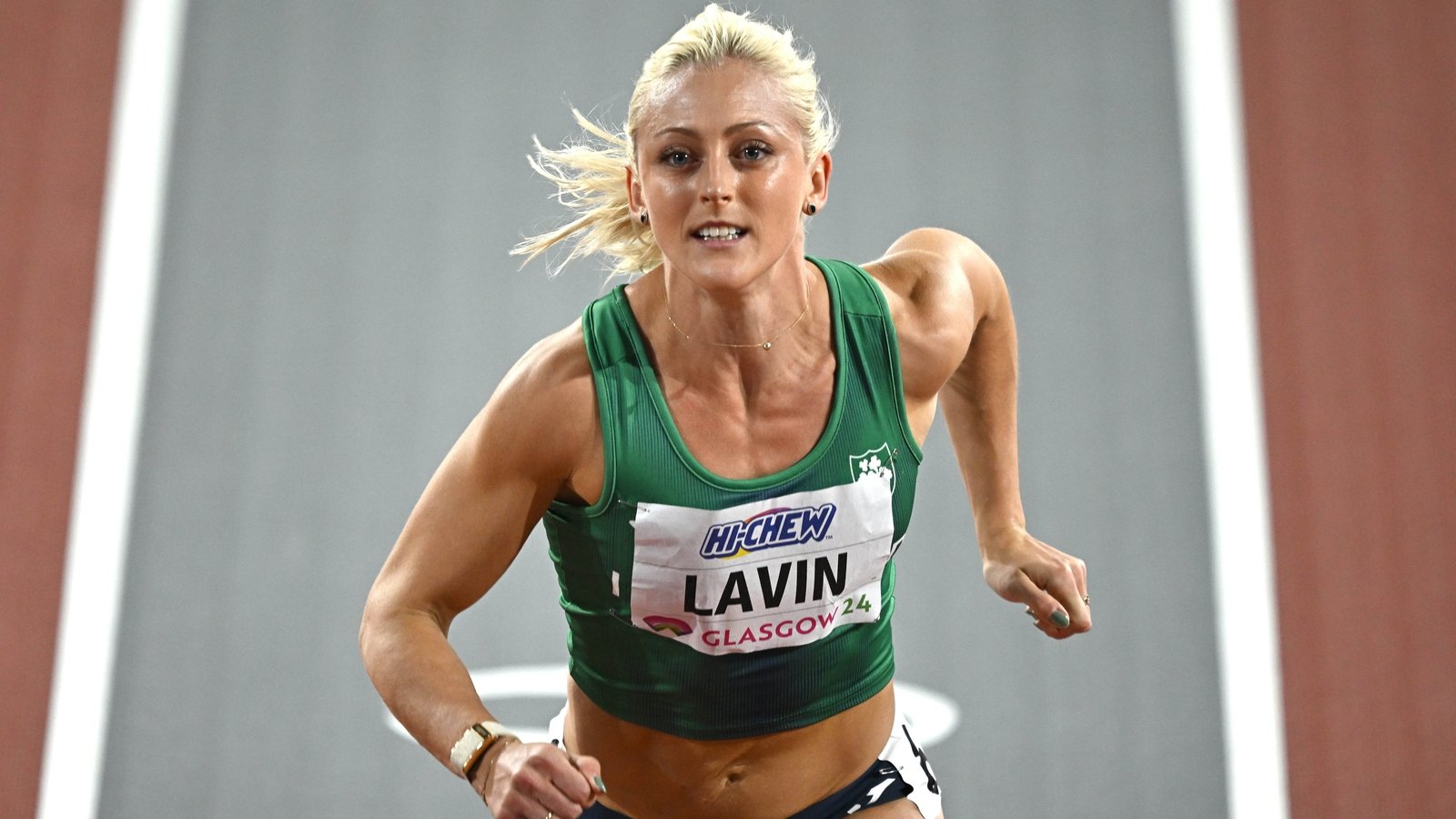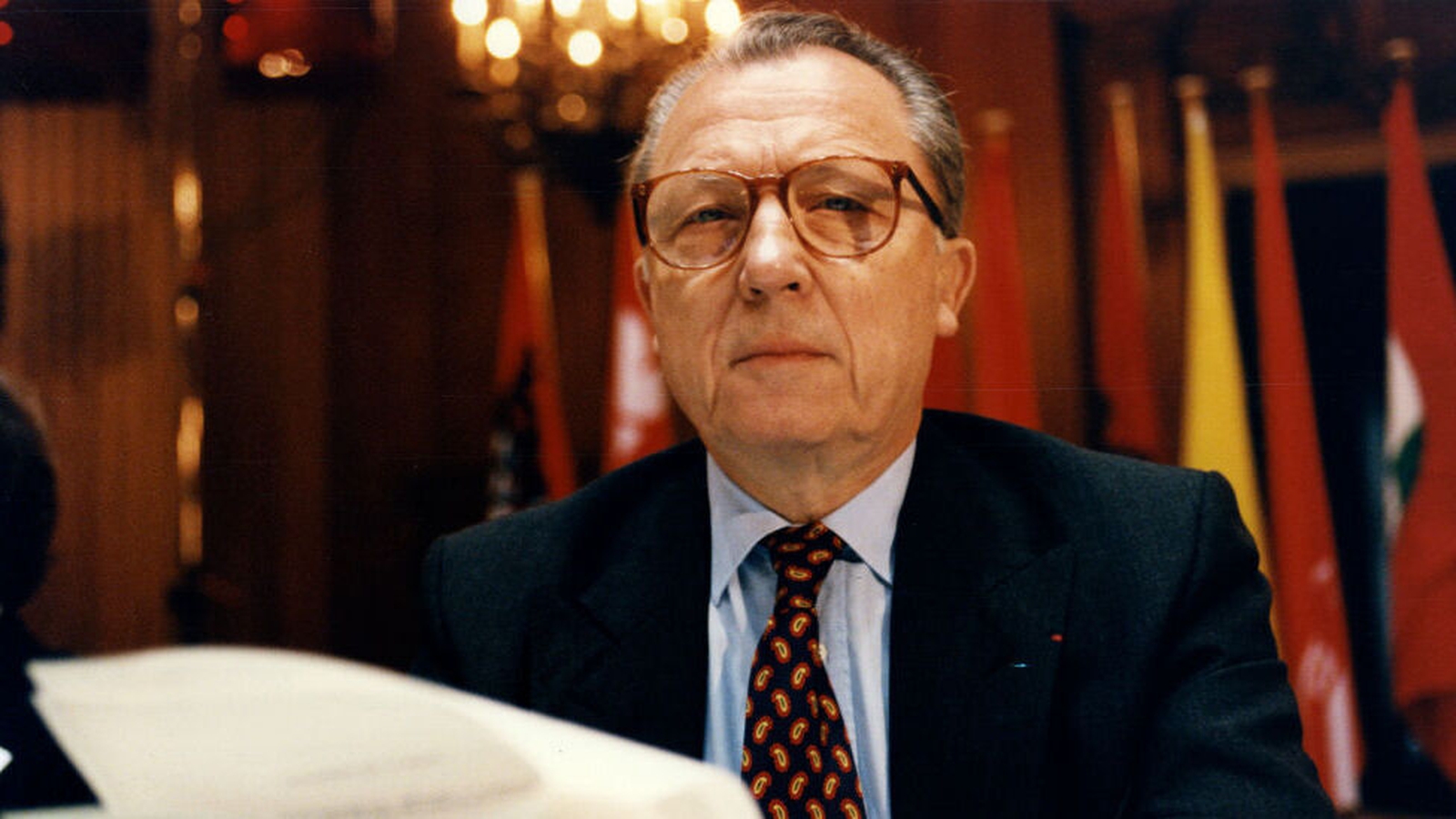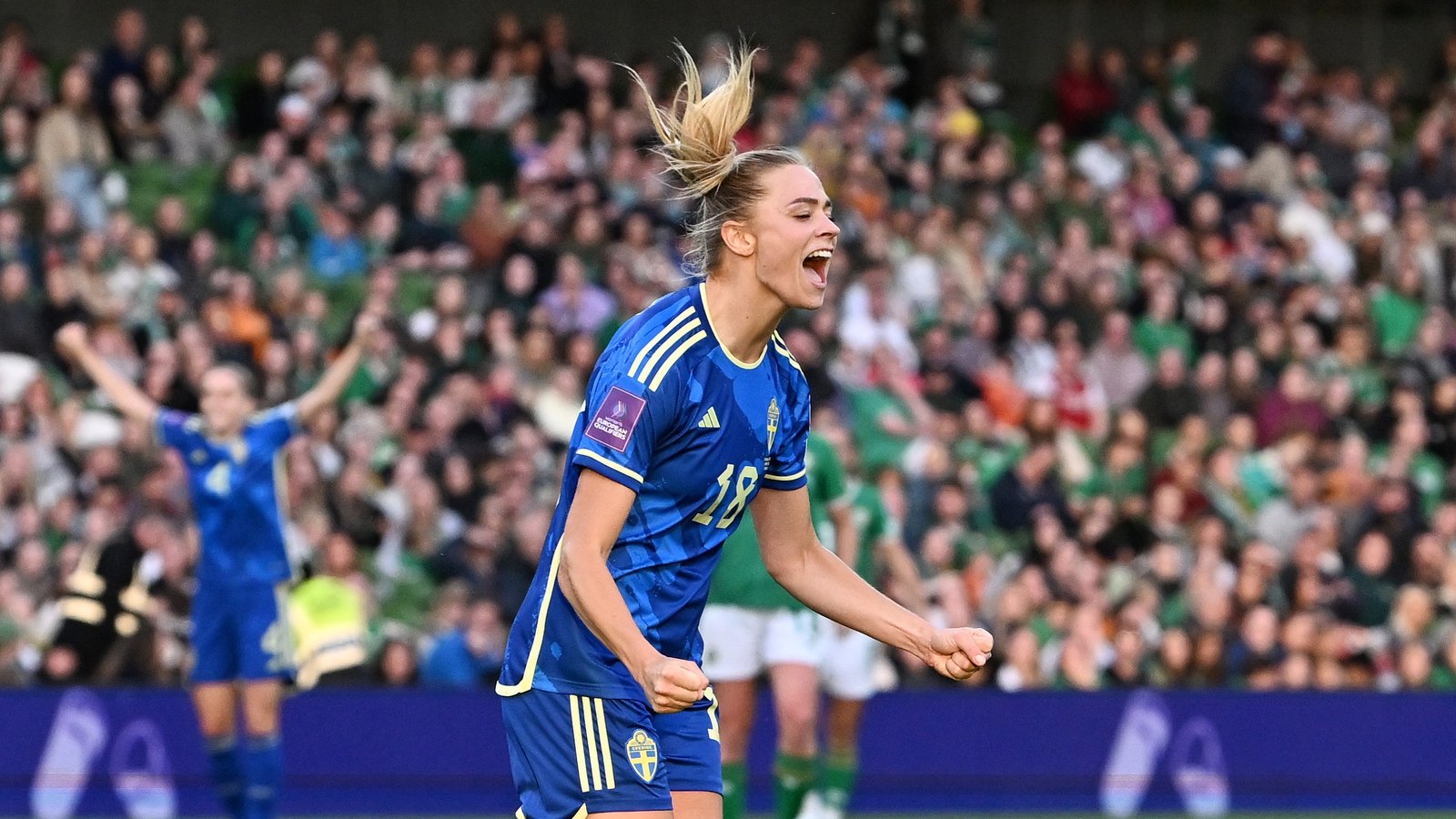European elections 2024: What happens next?
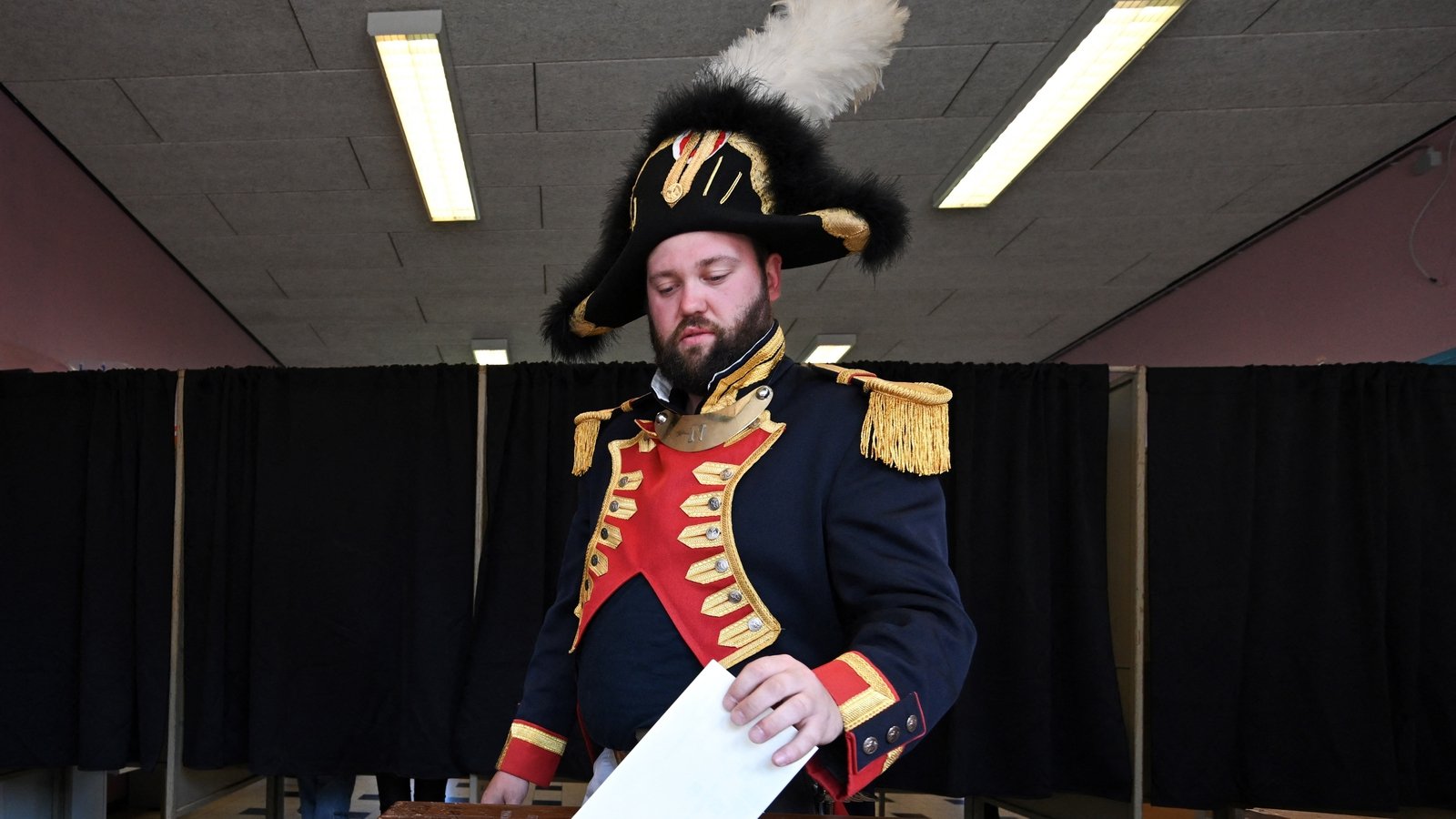
The results are still coming in from across Europe, but a relatively clear picture is emerging.
The far right and populist right have done well, but it is perhaps more of a continuing trend than a surge.
The centre right European People’s Party (EPP) has increased its vote, the centre-left Socialists and Democrats (S&D) have held up their percentages despite some losses, while the liberal Renew group have suffered a loss of around 20 seats.
The big political impacts have been in France and Germany: Emmanuel Macron has dissolved the National Assembly and called legislative elections in the face of the big far right National Rally win, while Chancellor Olaf Scholz is under pressure in Germany after he was beaten into third place by the far right AfD.
The AfD were recently expelled from the Identity and Democracy (ID) group after its leader Maximilian Krah told an Italian newspaper that not all Nazi-SS men “were necessarily criminals”, but that did not stop the party getting 16.5% of the vote, ahead of Mr Scholz’s SPD, on 14%.
The Greens have lost around 20 seats.
On the far right, the ID will have a projected 58 seats, while the populist right European Conservatives and Reformists (ECR) will get 73 seats.
The latest projections are here.
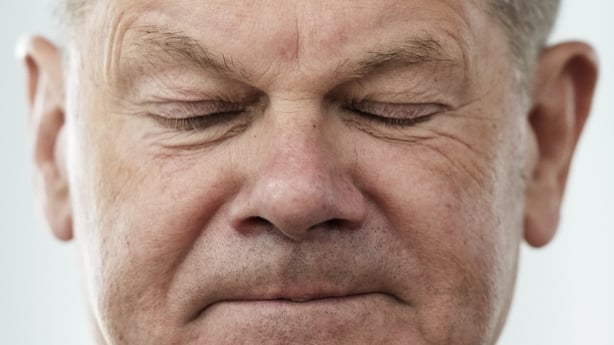
So, what happens next?
There are currently seven political groups in the parliament.
Tomorrow the leaders of all seven will meet the president of the European Parliament Roberta Metsola in what is termed the Conference of Presidents.
Political groups can change, coalesce or disappear depending on the circumstances at any time during a five year term, but generally they need to get their houses in order ahead of the first plenary session, when the new parliament “constitutes” itself.
That happens no earlier than one month after the election, so in this case it will be in Strasbourg on 16 July.
It will be a busy session: the Parliament must elect a new president (Ms Metsola is expected to be confirmed for a further two and a half years under a code share agreement with the S&D) and 14 vice-presidents, and constitute all of its 20 parliamentary committees, each one consisting of between 25 and 88 MEPs, and each with a chair, a bureau and a secretariat.
The political makeup of the committees depends on which groups have the most MEPs.
The bigger the group, the more power they have on committees and the more they can shape EU legislation.
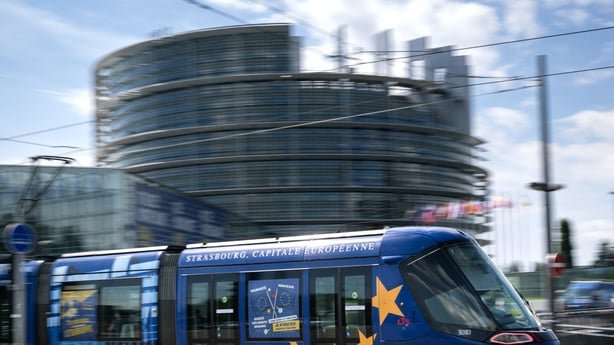
It is only when the new parliament has been constituted that it can tackle its first major task: the approval of the European Commission president-designate.
In normal times, the second plenary of the new cycle would take on that task, but because the elections were later than usual this time around, the second plenary is not until September.
The Conference of Presidents could decide to hold the vote on 18 July or to delay it until September.
The latter option would be the preference of the EPP, whose lead candidate is the outgoing president Ursula von der Leyen.
The EPP wants more time to negotiate support for Ms Von der Leyen from the other groups in the centre bloc: the S&D, Renew and (possibly) the Greens.
Ms von der Leyen still has to be endorsed by EU leaders.
They will hold an informal dinner in Brussels next Monday night to have a first discussion on her candidacy, as well as the other “top jobs”, namely the President of the European Council (who chairs EU summits and represents 27 EU leaders), as well as the High Representative for Foreign Policy (currently Josep Borrell).
The issue will be more formally dealt with at the regular summer European Council meeting on 27-28 June.
It is thought that Ms Von der Leyen has the support of at least 12 EU leaders (since Ireland is led by an EPP/Fine Gael Taoiseach, it seems unlikely that Simon Harris would block her bid for re-appointment).
The EPP has been the clear winner of the election and convention has held that that group’s lead candidate should get the Commission president position.
Read more: European elections: 5 talking points from across the continent
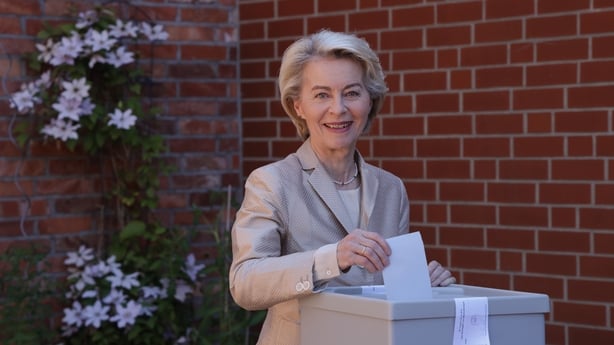
In 2019, the EPP’s lead candidate was the German MEP Manfred Weber, but he was not at all adored by EU leaders; Ursula von der Leyen was a surprise pick, and was pushed by Emmanuel Macron.
Despite the rumours that Mr Macron favoured the former ECB president Mario Draghi as Commission President, it seems unlikely that there will be a rejection of Von der Leyen at the European Council table.
Of course, she will still need the support of the Parliament. That requires 361 votes out of 720 in a secret ballot (whether that is on 18 July or in September).
On the current projections, the centre bloc of EPP, S&D and Renew will have 402 seats. That would seem a comfortable majority, but as it is a secret ballot there are certain to be dissenters.
The Greens, who are currently projected to have 52 seats, could decide to back Von der Leyen, even though they did not last time round.
With a smaller footprint in the Parliament, the Greens may decide it is in their interest to support Ms von der Leyen, in the hope that she commits to pressing ahead with the European Green Deal.
That would absolve her of the need to seek the support of Italian prime minister Giorgia Meloni and the ECR.
The mantra in the past 24 hours from political leaders in the centre is “responsibility”, in other words, in the face of the far right and hard right challenge, parties who support the European project should work together to ensure its continued operation.
So far it looks as though the centre has held.
However, the rise of the far right in France and Germany, the two founding power-players of the European project, and Mr Macron’s gamble with the National Assembly, have made the future a lot less predictable.
Read more: Far-right gains in EU election as France calls snap vote

